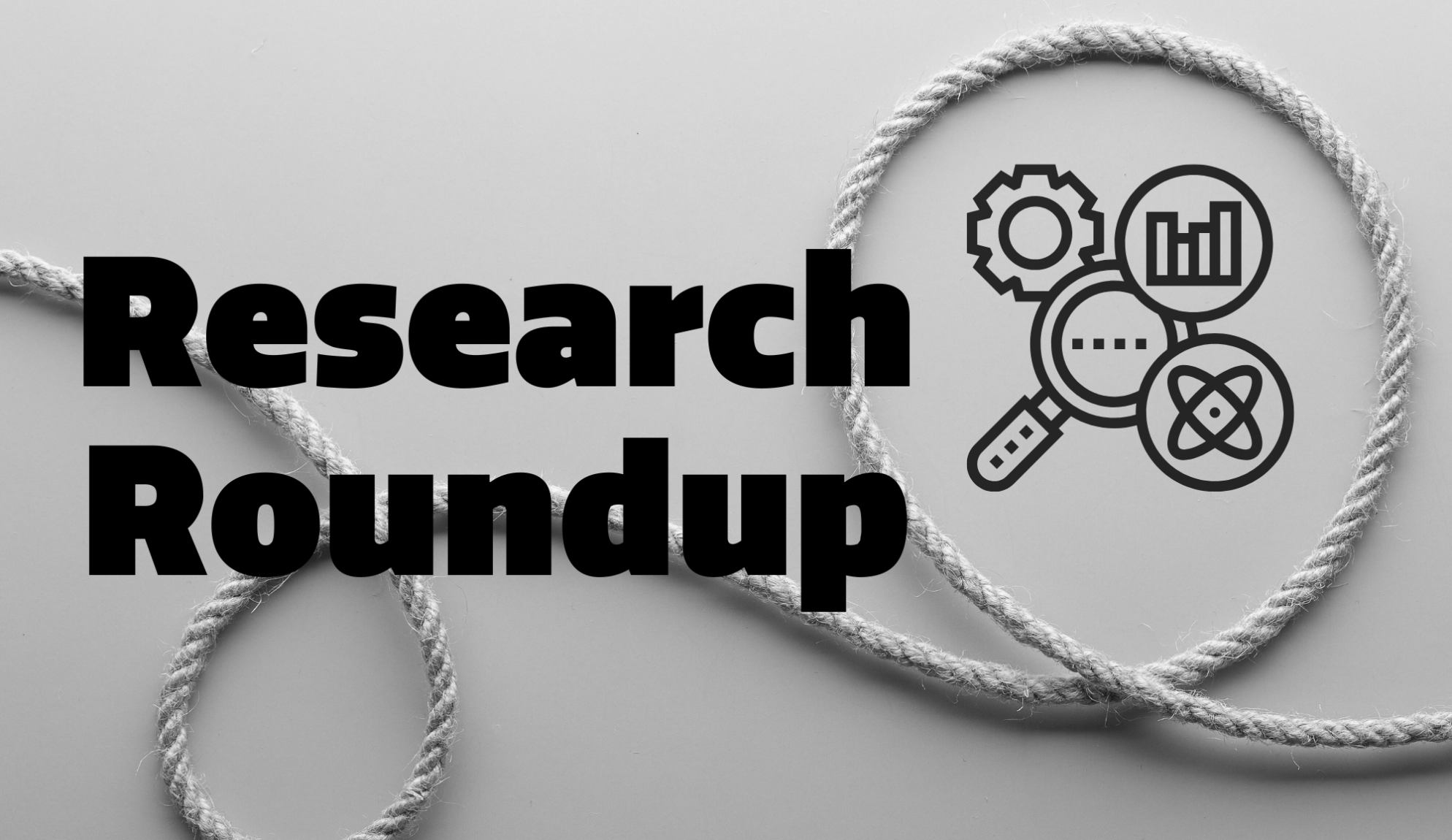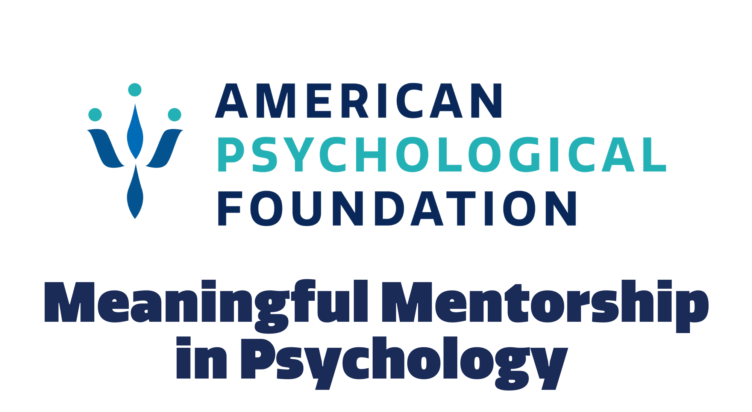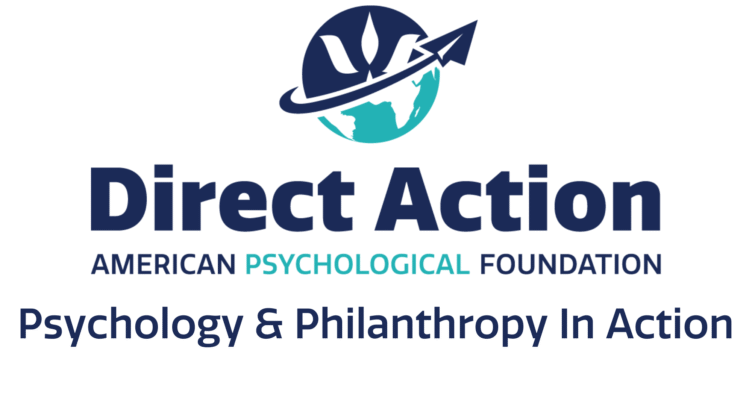APF Research Roundup: Suicide Prevention and Awareness

*Content Warning: This post mentions suicide and may be triggering.
September is Suicide Prevention Month. The American Psychological Foundation believes that through research, interventions, and implementation, psychology has the power to change the narrative on suicide.
Psychology provides tools for prevention by deepening our understanding, reducing risk, expanding access to care, and empowering communities. It also fosters hope, breaks down stigma, and transforms science into action that saves lives.
Over the past year, APF has funded several projects dedicated to suicide prevention across diverse contexts and communities. We are grateful to the researchers, clinicians, and supporters whose work helps change the narrative, break the stigma, and save lives.

Kiara Álvarez, PhD (she/her)
Bloomberg Assistant Professor of American Health, Department of Health, Behavior and Society at the Johns Hopkins Bloomberg School of Public Health
2025 Direct Action Visionary Grant
Project Title
Enhancing Mental Health Support for Latine Families Facing Immigration Stress
Research Summary
Our team has developed an intervention program delivered by community health workers (CHWs) to caregivers of youth with suicidal ideation and/or behavior who are referred from pediatric primary care practices. This American Psychological Foundation Direct Action Visionary Grant provides the important opportunity to continue delivering the intervention to Spanish-speaking caregivers who face barriers in accessing mental health education and support, while also creating new training and intervention materials that our program’s CHWs need to effectively address the unique stressors facing these families. Through our work, we aim to make evidence-based suicide prevention available broadly, using an approach based in family strengths, with information delivered by trusted messengers, in the settings where families typically seek care.
Learn more here.

Jasmin Brooks Stephens, PhD (she/her)
University of California, Berkeley
2025 Visionary Grant
Project Title
Reimagining Suicide Prevention Through Black Youth Perspectives
Research Summary
Dr. Jasmin Brooks Stephens is an Assistant Professor of Psychology at UC Berkeley whose work focuses on supporting the mental health and well-being of Black youth, young adults, and families. Her research explores how experiences like racism and trauma impact mental health while also highlighting the cultural strengths and community resources that promote resilience and thriving. Partnering closely with youth, families, and communities, she develops programs and policies aimed at preventing suicide and reducing mental health disparities within Black communities. Her work has been recognized and funded by leading national organizations and published in top scientific journals.

Kinjal Patel (she/her)
Old Dominion University
2025 Elizabeth Munsterberg Koppitz Child Psychology Graduate Student Fellowship
Project Title
Examining Mechanisms Linking Sleep Problems to Suicide Risk in Adolescents: A Real-Time Monitoring Study
Research Summary
Suicidal thoughts are increasing and impairing in adolescents, and sleep problems are an emerging proximal and developmentally relevant risk factor for suicidal thoughts among adolescents. However, the ways in which sleep is disrupted in high-risk adolescents, and how sleep problems may confer risk for suicidal thoughts are currently unclear. The current study applies a rigorous multi-method assessment approach to examine short-term mechanisms linking sleep problems and suicidal thoughts in high-risk adolescents to inform effective intervention and prevention targets.

Katherine Musacchio Schafer, PhD (she/her)
Vanderbilt University Medical Center
2024 Practice Based Evidence Fund Grant
Project Title
Implementing a Clinical Decision Support Tool to Help Emergency Department Providers Place Outpatient Mental Health Referrals for Patients with High Risk Suicidality
Research Summary
Patients who have high risk suicidality often face long wait times for mental health care, even when they are admitted to hospitals. In this APF funded project we are exploring ways to improve access to mental health treatments for these patients. We will use qualitative analyses to understand if patients would be open to using previously validated self-guided treatment apps to reduce suicidality while they are in the hospital.

Mary Kathryn Cancilliere, PhD (she/her)
Rhode Island Hospital
2024 Visionary Grants
Project Title
An Emergency Department Family Navigator Intervention Protocol to Reduce Youth Risk of Suicide and Self-injurious Behavior: Pilot Randomized Controlled Trial
Research Summary
The purpose of this feasibility and acceptability pilot study is to further develop and examine a Family Navigator with technology-enhanced information via text intervention for families with youth who were discharged from the emergency department after an admission for suicidal and non-suicidal self-injurious behavior (SSIB). This novel intervention aims to reduce SSIB risk and increase linkage to community-based mental health services. This intervention is informed by the literature, stakeholder feedback and requests, family-based approach, and developed to directly target three putative mechanisms of change.

Parisa Renee Kaliush, PhD (she/her)
University of North Carolina at Chapel Hill
2024 Visionary Grants
Project Title
Dynamics of Suicide Risk Among Perinatal Psychiatric Inpatients Post-Discharge
Research Summary
This project will be the first to study how changes in sleep and mood during postpartum relate to suicide risk among individuals seeking inpatient psychiatric care. Postpartum individuals will wear sleep monitors and complete surveys during inpatient psychiatric treatment as well as when they discharge to outpatient care. This study can help us improve prevention and intervention efforts to save new moms’ lives.

Emily Herry, PhD (they/them)
The Ohio State University
2024 The Springfield Research Fund Grants
Project Title
Gender Minorities’ Suicidal Ideation and Depressive Affect: An Ecological Momentary Assessment of Temporally Proximal Risk Factors
Research Summary
Transgender and nonbinary people face a higher risk of depression, suicidal thoughts, and other mental health outcomes compared to the general population, especially in young adulthood. However, research has often treated LGBTQIA+ people as one group when examining these experiences, potentially missing important differences in how transgender and nonbinary people, in particular, navigate identity-related experiences and how those experiences relate to their mental health. This study aims to uncover specific identity-related experiences that impact depression and suicidal thoughts in gender minority young adults by tracking their daily experiences over a month. This study will look closely at how different sources of stigma impact mental health and whether reduced feelings of belongingness play a role in these effects.

Tia Tyndal, PhD (she/her)
Children’s Hospital Los Angeles
2024 Dr. Diana Slaughter Kotzin and Mr. Joseph G. Kotzin Fund Grant
Project Title
Bridging the Gap: A Collaborative Intervention Group for Black Youth at Risk for Suicide
Research Summary
The Bridging the Gap project aims to develop a group intervention for Black youth with suicidal thoughts and behaviors. As the suicide rate continues to climb for Black youth, interventions aimed at addressing suicidal thoughts and decreasing suicide attempts are critically needed. For Black youth, mental healthcare often comes during a crisis where they may be faced with punitive and traumatizing treatment options. By creating an adaptable, accessible, and community-engaged group intervention model, there is an opportunity to bridge the gap at two critical points of care: before and after a suicidal crisis.
Want to contribute to projects like this and create impact through psychology? Donate to APF today!
Topics: Mental Health Recipient Update Suicide Prevention
Discover More

Meaningful Mentorship in Psychology with APF’s Early Career Psychologist (ECP) Committee Chairs
January is National Mentoring Month, and at APF, we know that mentorship is essential in shaping the next generation of researchers and psychologists. Supporting students …

APF’s 2025 in Review: Moving Psychology Forward
From the Desk of Dr. Quist Ryder is a space for APF’s CEO to share insights and observations on APF initiatives, the state of psychology, …

Psychology & Philanthropy In Action with Dr. Kiara Álvarez
At APF, we’re bringing together the shared power of psychology and philanthropy to create a world where people are healthy, happy, and living with dignity. …
